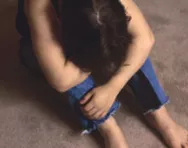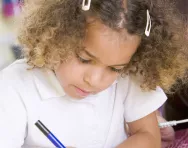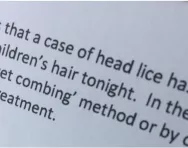Important update from TheSchoolRun
For the past 13 years, TheSchoolRun has been run by a small team of mums working from home, dedicated to providing quality educational resources to primary school parents. Unfortunately, rising supplier costs and falling revenue have made it impossible for us to continue operating, and we’ve had to make the difficult decision to close. The good news: We’ve arranged for another educational provider to take over many of our resources. These will be hosted on a new portal, where the content will be updated and expanded to support your child’s learning.
What this means for subscribers:
- Your subscription is still active, and for now, you can keep using the website as normal — just log in with your usual details to access all our articles and resources*.
- In a few months, all resources will move to the new portal. You’ll continue to have access there until your subscription ends. We’ll send you full details nearer the time.
- As a thank you for your support, we’ll also be sending you 16 primary school eBooks (worth £108.84) to download and keep.
A few changes to be aware of:
- The Learning Journey weekly email has ended, but your child’s plan will still be updated on your dashboard each Monday. Just log in to see the recommended worksheets.
- The 11+ weekly emails have now ended. We sent you all the remaining emails in the series at the end of March — please check your inbox (and spam folder) if you haven’t seen them. You can also follow the full programme here: 11+ Learning Journey.
If you have any questions, please contact us at [email protected]. Thank you for being part of our journey it’s been a privilege to support your family’s learning.
*If you need to reset your password, it will still work as usual. Please check your spam folder if the reset email doesn’t appear in your inbox.
Managing toileting problems in primary schools
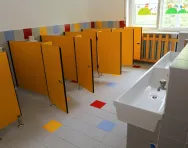
There’s a lot to worry about when your child starts school, from whether they’ll make friends to how they’ll cope with the new rules and routines.
A big concern for many parents is how their child will manage their own toileting at school.
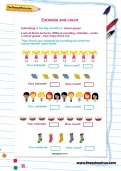
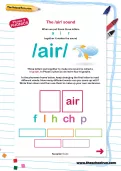
Unique Reception Learning Programme!
- Weekly maths & English worksheets direct to your inbox
- Follows the National Curriculum
- Keeps your child's learning on track
‘The rise of children starting in school wearing nappies or having accidents is an issue facing schools nationally,’ says Brenda Cheer, paediatric specialist continence nurse at the children’s continence charity ERIC.
In fact, research by ERIC and the Association of Teachers and Lecturers shows that 62% of primary school staff, and 71% of those working specifically with three- to five-year-olds, have noticed an increase in the number of children having accidents at school in recent years.
‘This includes those who just haven’t quite managed to get reliably clean and dry yet, through to those who have a life-long complex condition which affects their bladder or bowel such as a congenital abnormality,’ explains Brenda.
How common are toileting issues in primary schools?
It’s very common for children to have some issues with toileting in the early years of primary school.
‘ERIC estimates that in a class of 30 four- and five-year-olds, at least three or four of them will be struggling with delayed toilet training,’ says Brenda. ‘Several more will still have occasional accidents.’
Research has also shown that many more children struggle with wiping themselves and washing their hands after going to the toilet.
So if your child isn’t reliably clean or dry on starting school, it’s highly likely there will be others in the same situation.
Can schools refuse to admit children with toileting issues?
It’s natural to worry that your child will be turned away from school if they have wetting or soiling problems or still wear nappies or pull-ups, but this is unlawful.
The Equality Act 2010 states that schools must not discriminate against or disadvantage disabled children or those with special educational needs. A delay in achieving continence is considered a disability, so schools cannot refuse or delay admission to children who are not yet clean or dry.
The Children and Families Act 2014 also requires schools to support pupils with medical conditions, including bladder and bowel problems.
‘I was really worried that Alex wouldn’t be allowed to continue at school if he pooed his pants, as I’d heard that children had to be fully toilet trained before starting,’ says Hayley, mum to Alex, Year 2.*
‘This kept me from contacting the school about his issues in advance, as I hoped they would resolve before he started, but his teacher was very relaxed about it and told me not to worry as they’d dealt with similar problems before.’
Are teachers and teaching assistants legally allowed to change children?
It’s a widely believed myth that school staff aren’t allowed to change children’s nappies, pull-ups or underwear, but this isn’t true.
Neither are schools required to provide two staff members to help a child who needs changing. ‘In fact, this is actively discouraged, so schools should not refuse to change or clean a child if only one member of staff is available to leave the classroom,’ Brenda explains.
‘For safeguarding reasons, staff should make sure another member of staff is aware that they are going to change a child, and is in the vicinity and visible or audible.
‘It’s also good practice to ensure that all aspects of continence care in school are documented in advance, for instance using an Individual Healthcare Plan (IHP), making sure parental consent is obtained for named carers to help with intimate care.’
Bear in mind that individual staff members can refuse to help change children who have wet or soiled themselves. ‘It’s the school’s responsibility to identify members of staff who will attend to children’s continence needs,’ Brenda adds.
Can parents be called in to deal with accidents?
Generally, it’s poor practice for schools to ask parents to come in to change their child after they've wet or soiled themselves.
The Department for Education's statutory guidance on supporting pupils at school with medical conditions states schools should not require parents, or otherwise make them feel obliged, to attend school to administer medication or provide medical support to their child, including with toileting issues.
‘It’s also tantamount to abuse to leave a child in wet or soiled underwear until their parent or guardian can come in to change them,’ adds Brenda.
‘My daughter suffers from chronic constipation and soiling, so I was concerned about what would happen if she had an accident at school,’ says Jemma, mum to Chloe, Year 4.*
‘But I spoke to the teacher and TA at the beginning of term, and they were sympathetic and sought to support my daughter by reminding her to drink water and go to the toilet, and I was never called in to deal with accidents.’
Hayley agrees. ‘I’m a stay-at-home mum and live near the school so I offered to go into school to deal with any accidents, but I was never asked to,’ she says.
How can schools help children with toileting issues?
The Children and Families Act 2014 says schools have a statutory duty to support children with health conditions, including bowel and bladder problems.
Measures that could be put in place might include:
- Having a policy setting out how the school will approach toileting. There should be a system in place for meeting all children’s needs; if the blanket toileting policy doesn’t cover your child’s issues, you may be asked to provide parental consent for any changes.
- Providing spare clothes in the case of occasional accidents, and notifying you at the end of the day that your child has had a mishap.
- Working with parents to identify appropriate protection/containment such as incontinence pads or washable absorbent pants; schools shouldn’t put pressure on parents or carers to send their child in wearing a nappy 'just in case.’
- Giving the child a 'toilet card' or similar that allows them to go to the toilet whenever they need to. The school may ask for a signed letter from a health professional stating that they have a condition that means they need a toilet pass.’
- Providing children with ongoing problems with an Individual Healthcare Plan. This is essential to ensure their needs are sensitively and effectively, and that all people responsible for the child understand their needs.
You can help by providing your child with changes of clothes and spare continence products, if they need them, to be kept at school.
As they get older, you can encourage them to become more independent in how they deal with their continence issues, although they should still be helped if and when they need it.
‘I would suggest speaking to the teacher or TA at the beginning of term: arrange a specific meeting away from the playground,’ advises Jemma.
‘Get a written agreement in place that sets out the support your child might need, such as being prompted to go to the toilet after lunch.’
It’s worth bearing in mind that there’s no legislation against schools refusing toilet access, for example during lessons. However, in the early years of primary school it’s reasonable to allow children to use the toilet whenever they need to.
Older children who have known issues should also be allowed free access to the toilets, possibly using a toilet pass as described above.
Most primary schools also allow children to drink water freely throughout the day, and this should be encouraged: not drinking enough water can cause and aggravate problems with the bladder and bowel.
ERIC provides free resources and information that can be used by schools, and by parents to encourage schools to improve their policies and facilities. This includes a comprehensive Help at School section, and a template Individual Healthcare Plan.
You can also access support on their helpline (0845 370 8008) or by email.
‘I was scared she’d be bullied because of her issues’
Sue is mum to Ellie,* Year 4, who has wetting and soiling problems. She runs a Facebook support group, Children's Continence Support - Parent Group.
‘Ellie has always had continence issues. She had difficulty potty training, and suffers from chronic constipation and an overactive bladder.
‘She was still wearing pull-ups prior to starting school, despite help from the health visiting team and the local continence service, and I was scared that she’d be bullied because of her wetting issues.
‘Ellie’s Reception teacher and TA tried their best: she was allowed to go to the toilet without permission, and they would remind her to go, but she wouldn’t tell anyone if she’d had an accident and often came home wet or dirty.
‘I was never made to feel uncomfortable or ashamed about the continence issues, but it broke my heart every time I collected her from school and could see the soiling on the back of her skirt.
‘These days, Ellie’s issues are much more manageable, but she does still have problems and the assumption seems to be that at her age, she should be much more independent about her wetting issues.
‘I constantly have to remind the school that she still needs prompting, and every year, I have to have a meeting with her new teacher to discuss her action plan for her. Even so, it often feels that it’s not taken seriously.
‘My advice to other parents is to make sure that you raise your child’s issues at the start of the school year.
‘Provide spare clothes, wipes and creams if needed in a bag that can sit on your child’s peg, and make sure the teacher understands what everything is for, and insist they use it if needed. Once a week, check the bag to see what needs replacing.
‘We also get Ellie to wear shorts under her dress, as this hides her continence knickers: especially important under flimsy summer dresses.’
* Names have been changed





